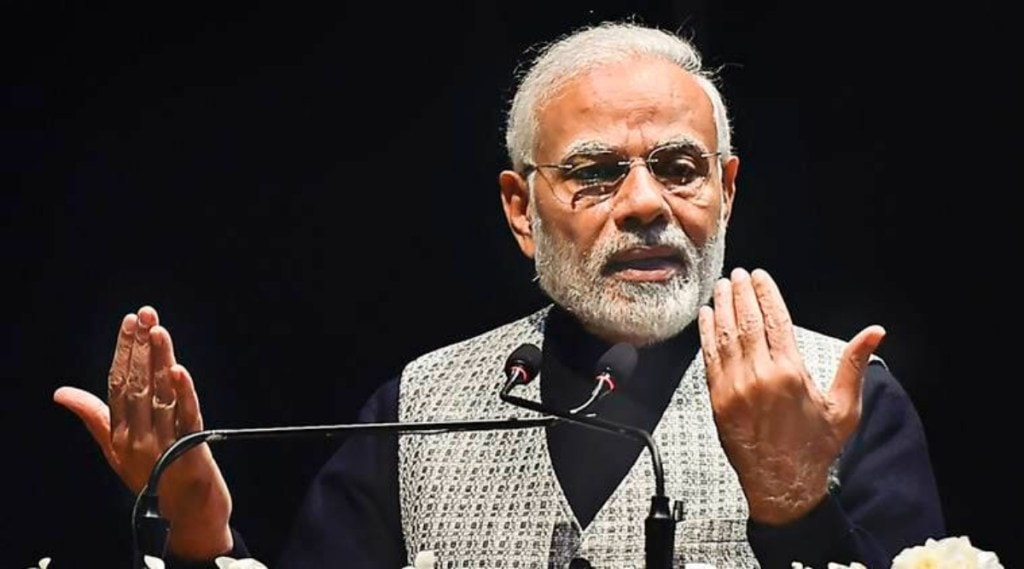Prime Minister Narendra Modi’s three-day sojourn in his parliamentary constituency of Varanasi starting March 3, till curtains fall on the Uttar Pradesh Assembly elections, is seen as a last-ditch effort by the BJP to make a critical difference to the party’s fortunes on 111 seats of eastern UP which go to polls in the sixth and seventh phases.
The party’s focus on PM Modi’s stay in Varanasi can be gauged from the fact that after Home Minister Amit Shah’s stay in the temple city for two days, party’s UP in-charge Dharmendra Pradhan and party chief JP Nadda will also camp in the town.
The message is quite clear – the party hopes to repeat its 2017 performance when it won all eight Assembly seats in the districts (BJP – 6, Apna Dal – 2). However, political observers also believe that the campaign is an attempt to subdue the anti-incumbency running high against two ministers from Varanasi who are part of the Yogi Adityanath cabinet.
Countering Samajwadi Party’s caste arithmetic
Eastern UP is considered key to victory in state assembly polls and is also the origin of the social engineering which the BJP implemented in 2017 by forging alliances with the Apna Dal and the Suheldev Bharatiya Samaj (SBSP) party, consolidating the non-Yadav OBC votes (nearly 35 per cent of the votes in the state) to sweep the area.
Back then, the BJP’s strategy was to garner the support of non-Yadav vote bank while the Yadav community remained the traditional supporters of the Samajwadi Party. However, this time, the SP is eyeing to disrupt that consolidation by trying to present itself as a larger OBC-Muslim umbrella party, with an alliance with former BJP ally, the SBSP, and poaching several OBC leaders, including three ministers from the BJP.
The ten BJP leaders, including the three ministers — all belonging to the backward community — jumped ship to the SP, leaving the ruling party perplexed. While the BJP countered the exodus by poaching former Union Minister R.P.N. Singh from the Congress, which eventually forced Swami Prasad Maurya to change his seat from Padrauna to Fazil Nagar, the party made sure that no prominent shift in its strategy was visible and hence retained several MLAs despite them facing high anti-incumbency.
Ticket distribution and organisational imbalance
The BJP has retained several of its MLAs despite the fact that they face severe anti-incumbency on their respective seats. Observers believe that the strategy of the ruling party is to deter the opposition from targetting the “double-engine” government, which is seeking votes on the work it has done in the last five years.
From Varanasi South constituency, the BJP has reposed its faith on UP Tourism, Culture and Religious Affairs Minister Neelkanth Tiwari, who had won in 2017. Ever since the party began its campaign in the district, RSS and BJP workers have been reaching out to virtually every voter in Varanasi South seeking votes in the name of “rashtra nirman (nation building)”. Similarly, from Varanasi North, the BJP candidate is another UP minister, Ravindra Jaiswal, who is also believed to be facing anti-incumbency.
The Rohania seat was won by the BJP, but has gone to the Apna Dal (S) this time, which has fielded its state vice-president Sunil Patel. The seat, however, embraces a tight contest given that BSP, Congress and the Apna Dal (Kamerawadi)-SP too have fielded Patel candidates.
In Sevapuri — which was won by the Apna Dal (S) in 2017 — the BJP has fielded the same candidate, Neel Ratan Singh Patel. In both the seats — Rohania and Sevapuri — the BJP faces the challenge to placate a section of upper caste voters – Bhumihar Brahmins – who are reportedly unhappy over the party not giving ticket to sitting Rohania MLA Surendra Narayan Singh and fielding two Patel candidates, one on BJP symbol and the other on ally Apna Dal(S) symbol.
Moreover, a major issue for the BJP which has continuously emerged across the state is the lack of coordination between the local leaders and the officials in the administration. Time and again, media reports have highlighted that Chief Minister Yogi Adityanath has been relying more on his administrative officers rather than his partymen to respond to people and their issues.

